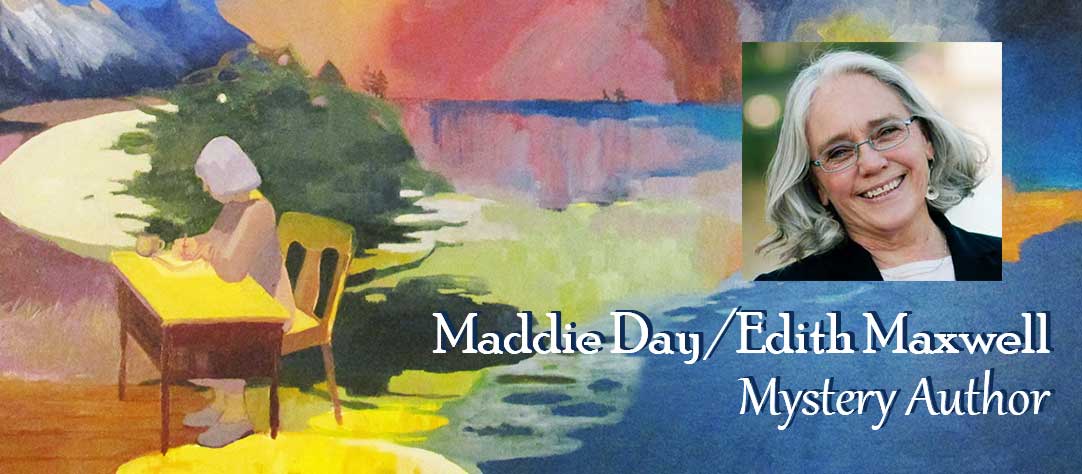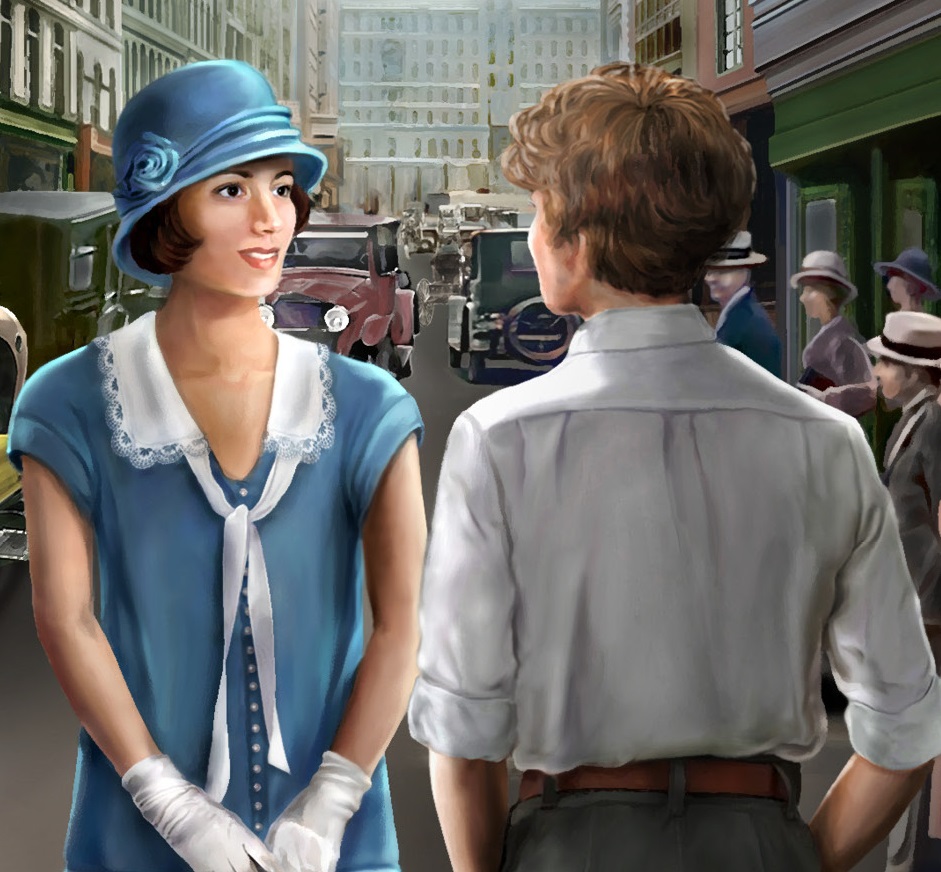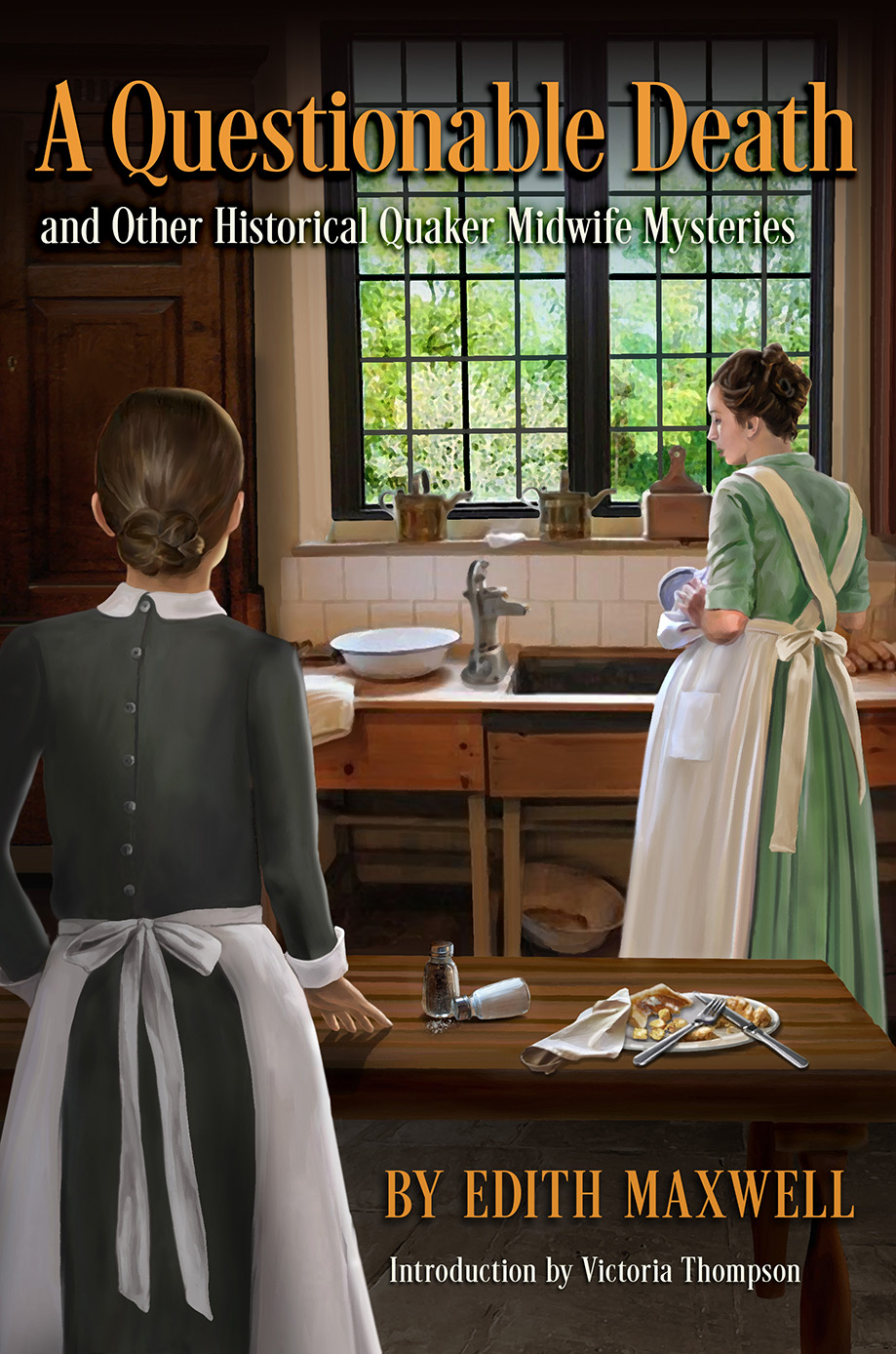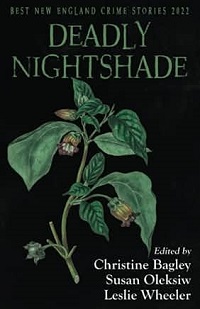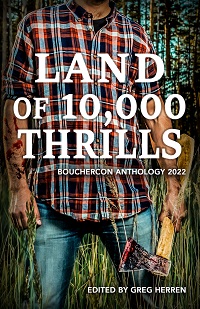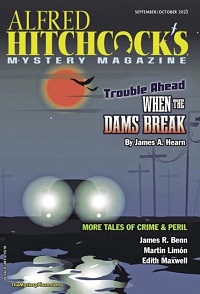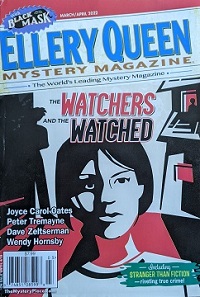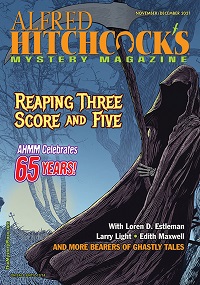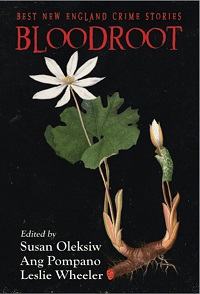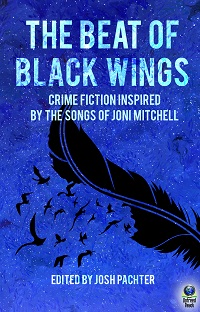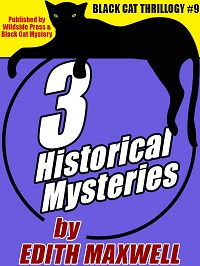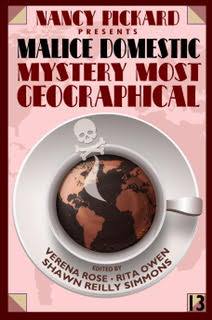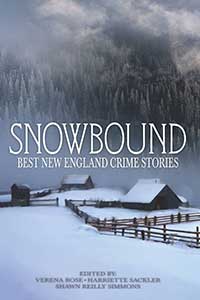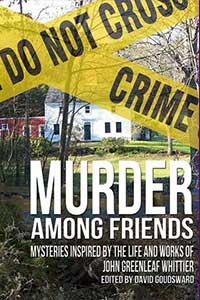Short Fiction
Short Fiction
Short Stories
The following stories of murderous revenge and other crimes were originally published in juried anthologies or magazines. Many have been republished as standalone short stories. And one of the most popular characters, Rose Carroll, went on to be featured in her own Quaker Midwife Mystery series.
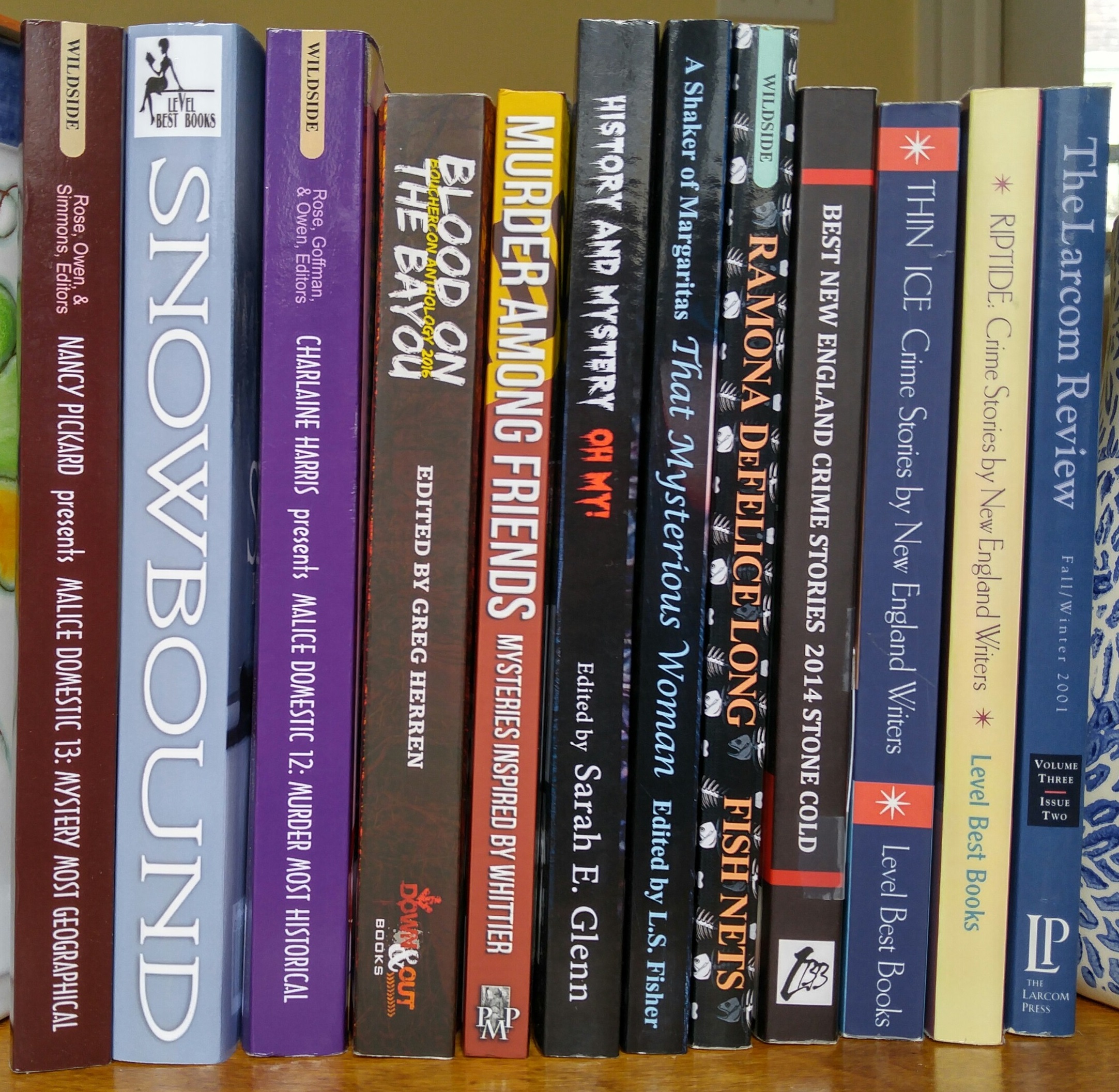
“Unmasked” is a Halloween short story set in 1926 Boston, with Amelia Earhart and lady PI Dot Henderson unmasking a criminal during the Halloween night parade. It appeared in Kings River Life Magazine in October, 2024.
A Questionable Death and Other Historical Quaker Midwife Mysteries is a collection of short stories featuring midwife Rose Carroll. Take a pictorial tour of the places in the stories here. The book released in April, 2023 from Crippen & Landru, and it’s also available from Amazon and B&N.
New stories in the collection include “Labor’s Peril” and “In Pursuit of Justice.”
Quaker midwife Rose Carroll comes out of retirement in “The Management of Secrets” to delve into her own church community and find a local counterfeiter before a more deadly crime is committed. This tale is included in Deadly Nightshade: Best New England Crime Stories, edited by Susan Oleksiw, Leslie Wheeler, and Christine Bagley (Crime Spell Books, 2022).
In “Forlorn Lake,” Geneva Larsen and a few former friends exact revenge on a dark Minnesota past. The story, a riff on Lake Wobegon from the Prairie Home Companion radio show, appeared in Land of 10,000 Thrills, the 2022 Bouchercon anthology, edited by Greg Herren.
After Dot Henderson and Ruth Skinner open their PI agency in 1920s Pasadena, California, they solve the murder of a lady astronomer in “Peril in Pasadena.” The story appeared in the Alfred Hitchcock Mystery Magazine September/October 2022 issue. This is Edith’s second story in this prestigious publication, and she’s honored to have her name on the cover. Listen to Edith read her story on the AHMM podcast.
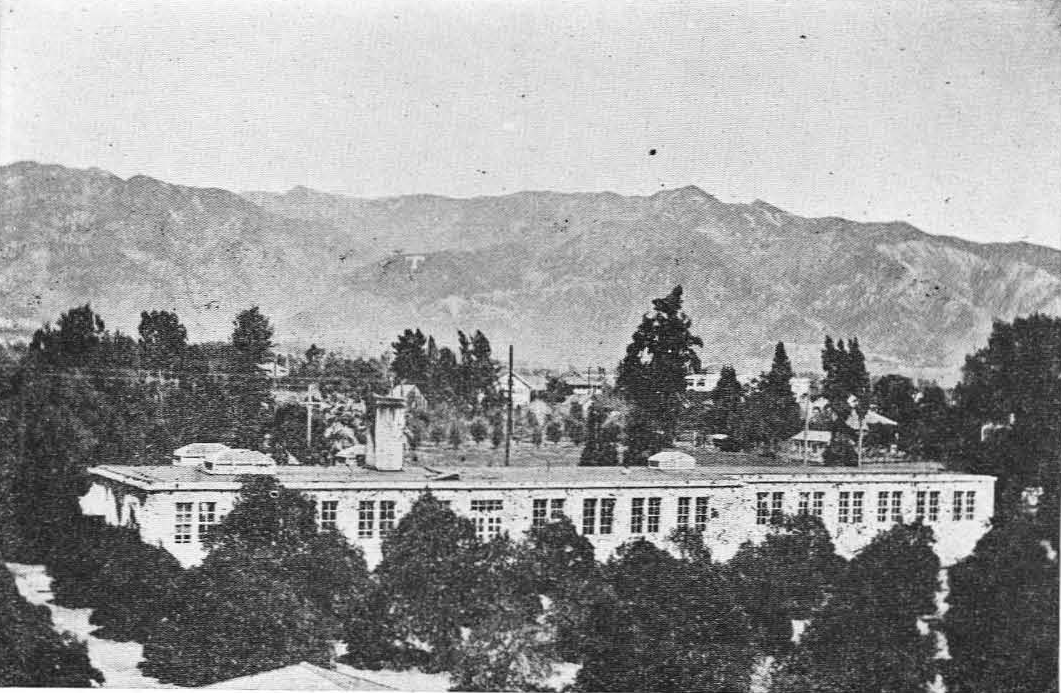
In “Bye-Bye, Jojo,” a woman with extra-acute hearing exacts murderous revenge on the owner of a big black dog who is left outside to bark one time too often. The story appeared in the Ellery Queen Mystery Magazine March/April 2022 issue, and is Edith’s second story in this prestigious publication.

“An Excellent Team” tells the story of Dorothy – Dot – Henderson and Ruth Skinner meeting in 1919 and working together to bring justice to an abused, murdered woman. The women’s names and characteristics were inspired by the author’s grandmothers. The story appears in Alfred Hitchcock Mystery Magazine in the 2021 November/December issue, on sale in October.
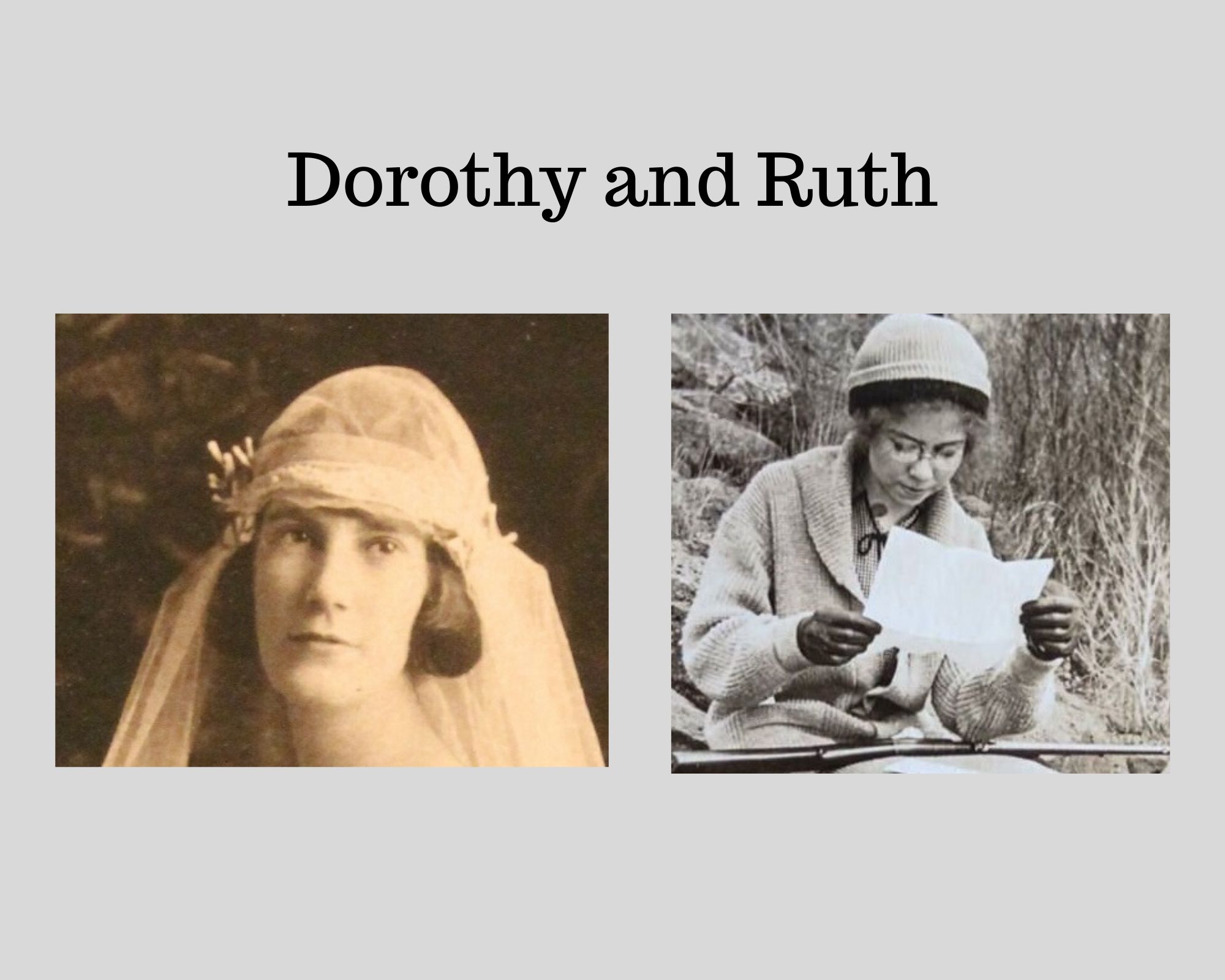
“Dark Corners,” a tale of Dot Henderson working with Amelia Earhart to solve a crime in 1926 Boston, is published in the highly competitive Bloodroot: Best New England Crime Stories (Crime Spell Books), out in November, 2021. The photo shows Earhart with the children of the Denison House settlement house in Boston, which is featured in the story.
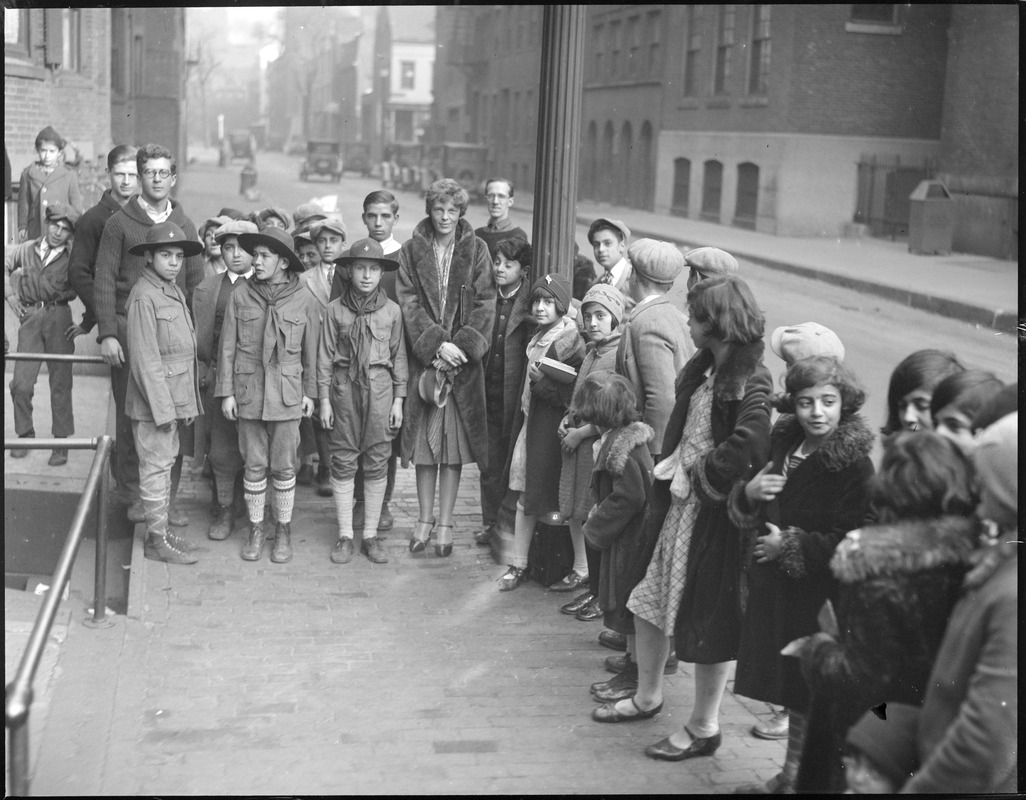
“Blue Motel Room” is inspired by Joni Mitchell’s song by the same name. It appears in The Beat of Black Wings (April 2020), a collection edited by Josh Pachter in which all stories riff on Mitchell songs, at least one from each of her albums. When petty thief Robin Rousseau finds a desiccated hand in the safe she’s pilfering, she stays in her depressing blue motel room in Savannah long enough to dig up the truth before using her maps to head for the other coast. (Album cover art: By Allmusicguide, Fair use, https://en.wikipedia.org/w/index.php?curid=13939380)
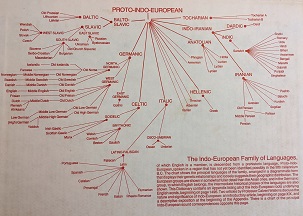
“One Too Many” is Edith’s first story in one of the two big short crime fiction magazines. It appears in Ellery Queen Mystery Magazine (March/April 2020). In the story, a hyperpolyglot – someone who easily speaks a dozen or two languages – uses her talents, for better and for worse. On the EQMM blog, Edith explains about how she came to write the story, and what pantsers and language learners have in common. Listen to her read “One Too Many” on the EQMM podcast.

Black Cat Thrillogy #9: 3 Historical Mysteries collects three previously published Rose Carroll short stories.
- “A Questionable Death” – a 2015 Agatha nominee for Best Short Story
- “The Mayor and the Midwife” – a 2017 Agatha nominee for Best Short Story
- “Adam and Eva” – told from the point of view of postmistress Bertie Winslow

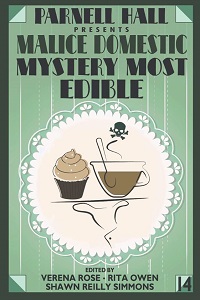
“Sushi Lessons” is Edith’s second short crime fiction set in Japan, where she lived and taught English several decades ago – and where she learned to make sushi. It appears in Malice Domestic 14: Mystery Most Edible, and features a young American couple, an old fish lady, and a wickedly helpful bartender in a suburb of Tokyo.
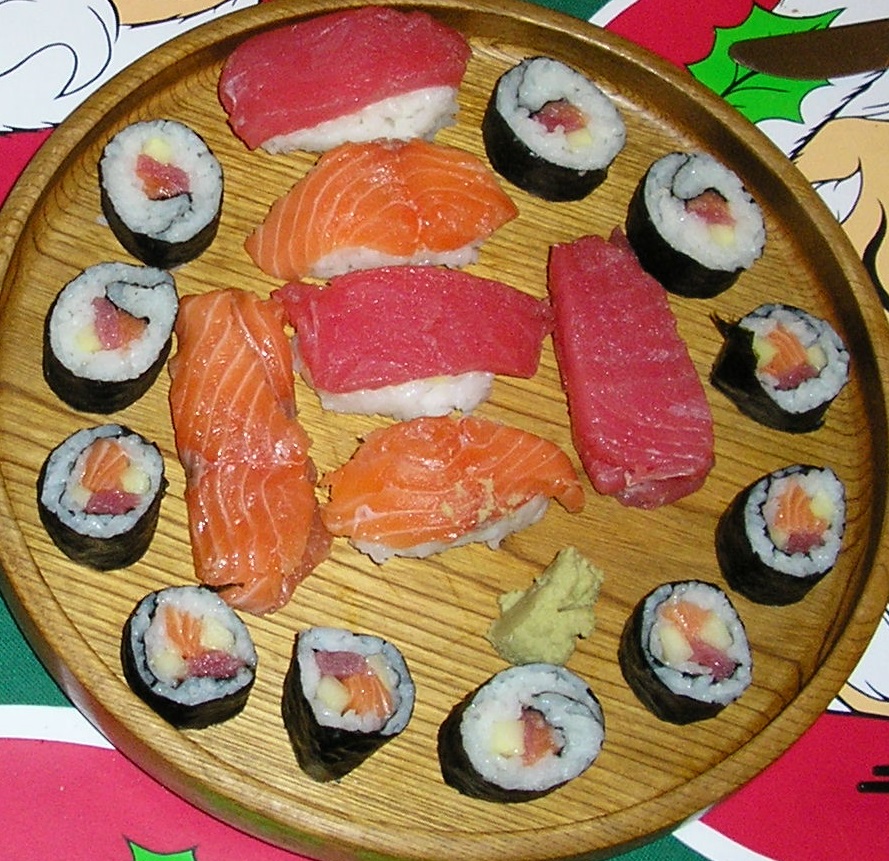
“A Divination of Death” is Edith’s first short fiction set in West Africa, where she lived for two years. It appears in Malice Domestic 13: Mystery Most Geographical (Wildside Press), with a diviner, an American researcher and her Burkinabe translator, and murder in the village.
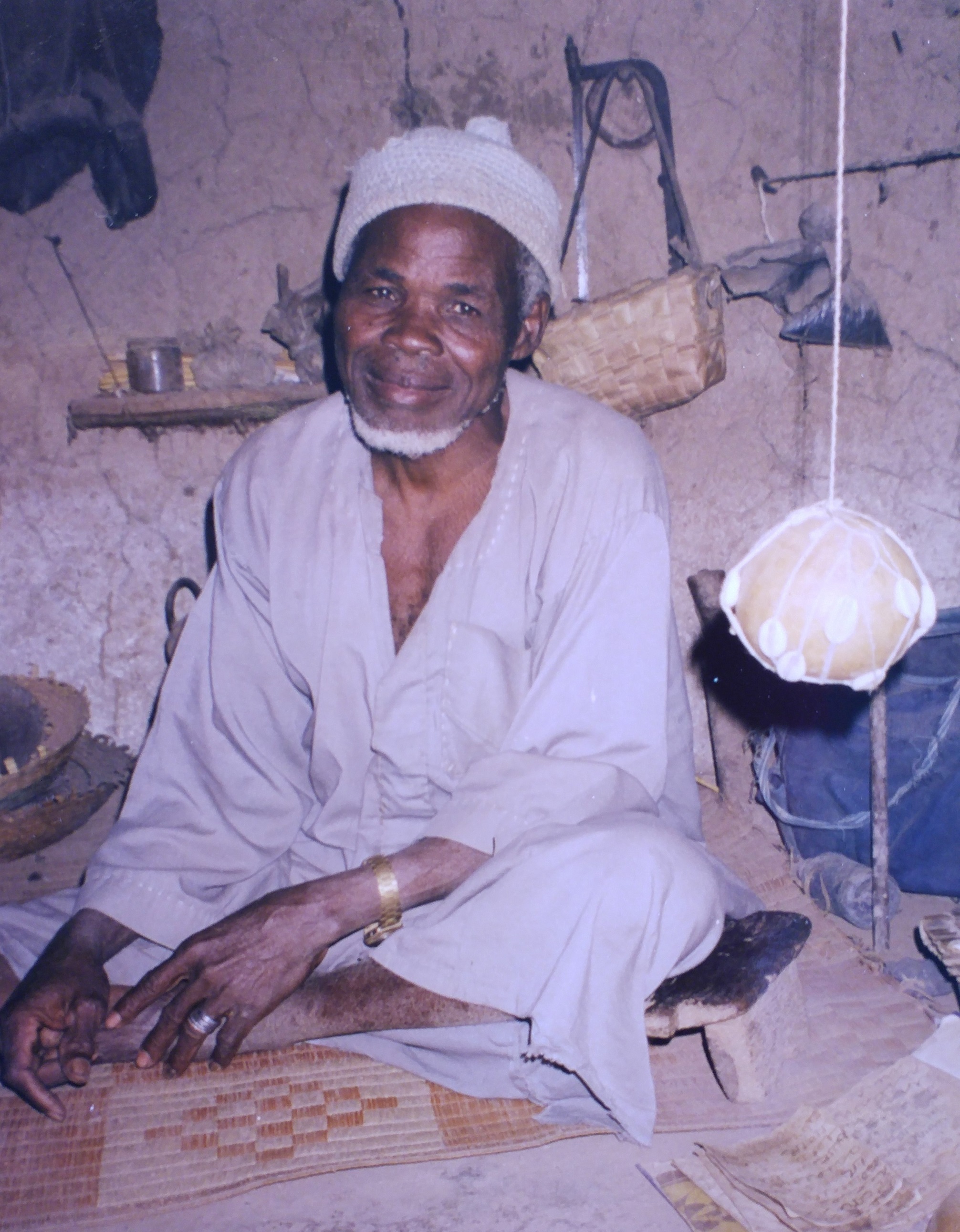
Edith’s story “An Ominous Silence” appeared in Snowbound: Best New England Crime Stories (Level Best Books, 2017). It’s the tale of an 1890s midwife stuck on a train in Vermont in the winter with a baby to deliver and a murder to solve.

“Murder in the Summer Kitchen” appears in Murder Among Friends: Mysteries Inspired by the Life and Works of John Greenleaf Whittier (2017). Midwife Rose Carroll once again brings her sleuthing powers to bear after a body is found in Whittier’s own summer kitchen. All proceeds benefit the John Greenleaf Whittier Birthplace Museum in Haverhill, MA.
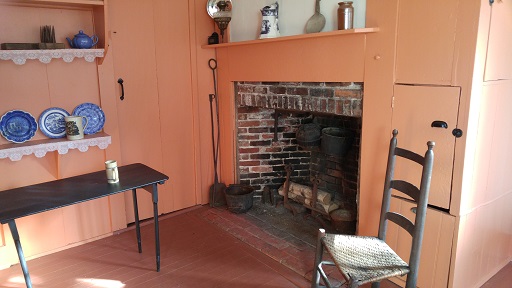
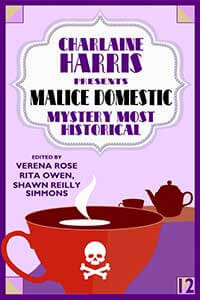
Edith was honored to have “The Unfortunate Death of Mrs. Edna Fogg” included in Malice Domestic 12: Mystery Most Historical (Wildside Press, 2017). In the story, midwife Rose Carroll finds the body of a woman suffrage activist and tracks down the killer even as she does her job of helping women birth their babies.
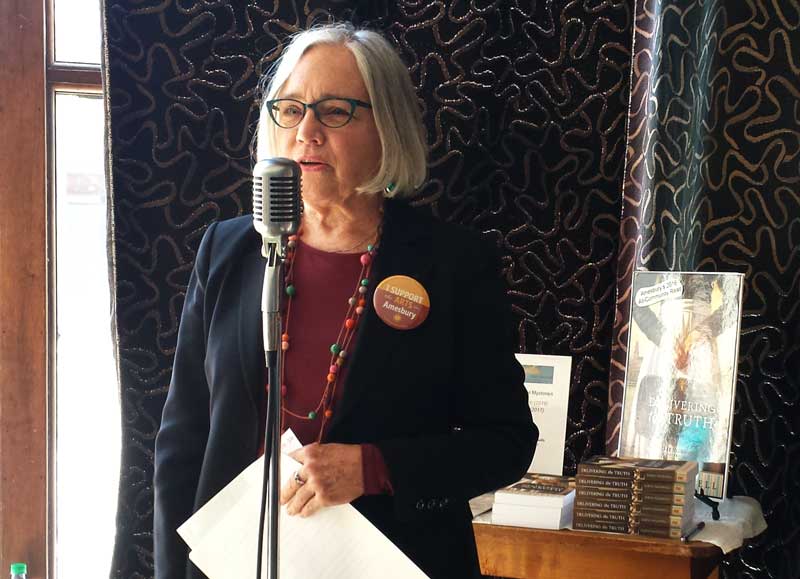
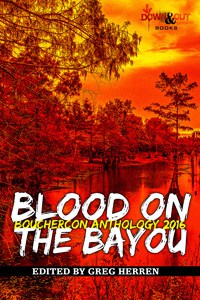
Edith’s short story “The Mayor and the Midwife” appeared in Blood on the Bayou: Bouchercon Anthology 2016 edited by Greg Herren (Down & Out Books). When the mayor of New Orleans comes to Amesbury, Massachusetts in 1888, Quaker midwife Rose Carroll solves the mystery of his son-in-law’s death. The story was nominated for a 2016 Agatha award for Best Short Story. Watch Edith read her story (starting at about minute 21) in this Facebook Live event.
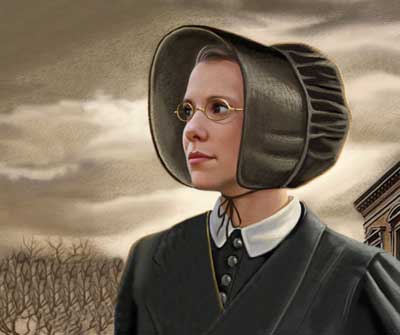
“A Questionable Death” appeared in Kings River Life Magazine (2017), originally published in History and Mystery, Oh My! The story was nominated for a 2015 Agatha Award for Best Short Story, and follows midwife Rose Carroll and postmistress Bertie Winslow in 1888 Amesbury, Massachusetts as they unravel a tale of abuse and deceit.
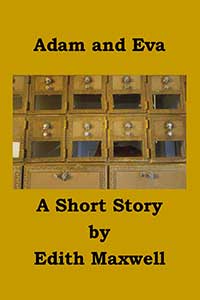

Agatha-nominated and Amazon best-selling “Just Desserts for Johnny” (also available on Nook and Smashwords), a short story of exacting revenge on a literary thief, originally appeared in Kings River Life Magazine. Agatha-nominated editor and author Chris Roerden said this about the story: “Just Desserts for Johnny” by Edith Maxwell is a model short story, from the perfect opening line to the satisfying, twist end. Love it!” The story was nominated for a 2014 Agatha Award for Best Short Story.

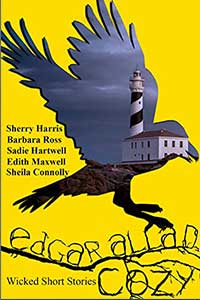
When cozy mystery writers meet Edgar Allan Poe, the result is Edgar Allan Cozy. (Wicked Cozy Press, 2016) . Each story in this suspenseful anthology is inspired by the work of Poe – “The Raven,” “The Lighthouse,” “MS. Found in a Bottle,” “The Cask of Amontillado,” “Annabel Lee” and Edith’s story, “An Intolerable Intrusion,” a riff on “The Tell-tale Heart. The stories are set in the fictional town of Raven Harbor, Maine. Edited by Sadie Hartwell.
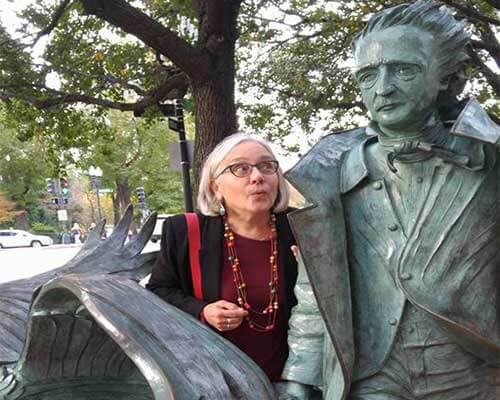

“The Case of the Missing Bicycle,” a short short story about a missing bicycle in Rose Carroll’s 1888 world, first appeared in Texas Gardener Magazine in 2015.

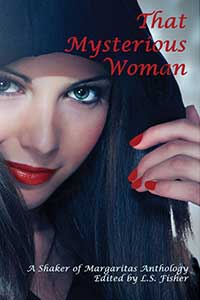
The story “Pickled” in That Mysterious Woman (Mozark Press, November 2014) debuts Robbie Jordan outsmarting a murderer in her country store restaurant, Pans ‘n Pancakes, in southern Indiana from Edith’s Country Store Mysteries series (written as Maddie Day).

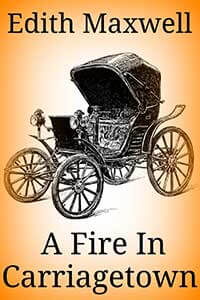
“A Fire in Carriagetown” is an Amazon best-selling historic crime short story that first appeared as “Breaking the Silence” in Best New England Crime Stories 2014: Stone Cold (Level Best Books, November 2013). The story features Quakers Faith Bailey, John Greenleaf Whittier, and the fictional story of who set a very real fire in 1888 in Amesbury, Massachusetts. The story won an Honorable Mention in the 2013 Al Blanchard Short Crime Fiction contest. It received a great review, too.
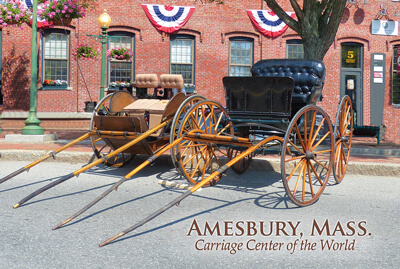
Postcard by Christine Green
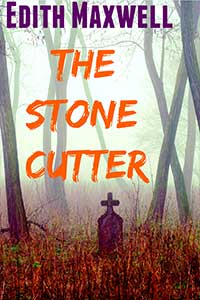
“The Stonecutter,” possibly Edith’s favorite piece of short fiction, is a murder story of middle-aged romance gone wrong in an increasingly dark New England fall. Reprinted in Best Laid Plans and now available on Smashwords, the story first appeared in Fish Nets: the Second Guppy Anthology, an anthology of crime stories (Wildside Press, April, 2013).
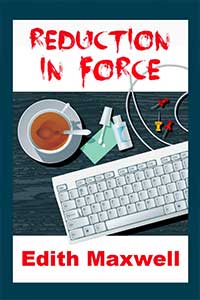
“Reduction in Force” describes murderous revenge after a corporate layoff, the first piece of fiction Edith wrote after being laid off from a job she’d held for fourteen years. It is available on Smashwords and Amazon and was originally published in Thin Ice: Crime Stories by New England Writers (Level Best Books, 2010).

“Yatsuhashi for Lance” is a short story about murderous revenge exacted after a betrayal in Japan. When Elise agrees to accept a package for her friend Lance, things go terribly wrong and change her life forever. It’s available on Smashwords and Amazon, and was originally published as “Obake for Lance” in Riptide: Crime Stories by New England Writers (Level Best Books, 2004).
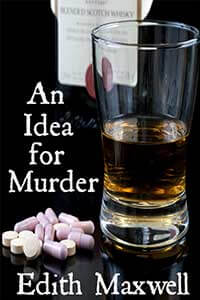
No story, no paycheck. In the Amazon best-selling “An Idea for Murder,” crime fiction writer Dorothy finally hits on an idea for murder for her next story, which turns out to be fatal in real life, too. The story, also available on Smashwords, first appeared (written as Tace Baker) in the Burning Bridges: A Renegade Fiction Anthology.
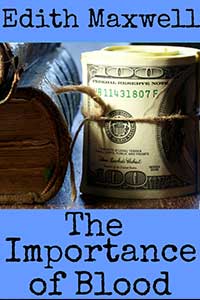
“The Importance of Blood,” also an Amazon best-seller and available on Smashwords, shows how identical twins’ differences in ambition and attachment to family can prove lethal. The story first appeared in the Burning Bridges: A Renegade Fiction Anthology.
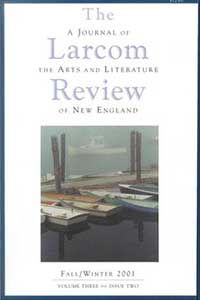
“The Taste of Winter,” a story of love and loss in later life, was published in the Larcom Review, Fall/Winter 2001.
Edith made her first money for writing fiction by winning a youth fiction contest in the Pasadena Star News when she was nine. “Viking Girl” is a short story of travel and adventure (written by a nine year old…).
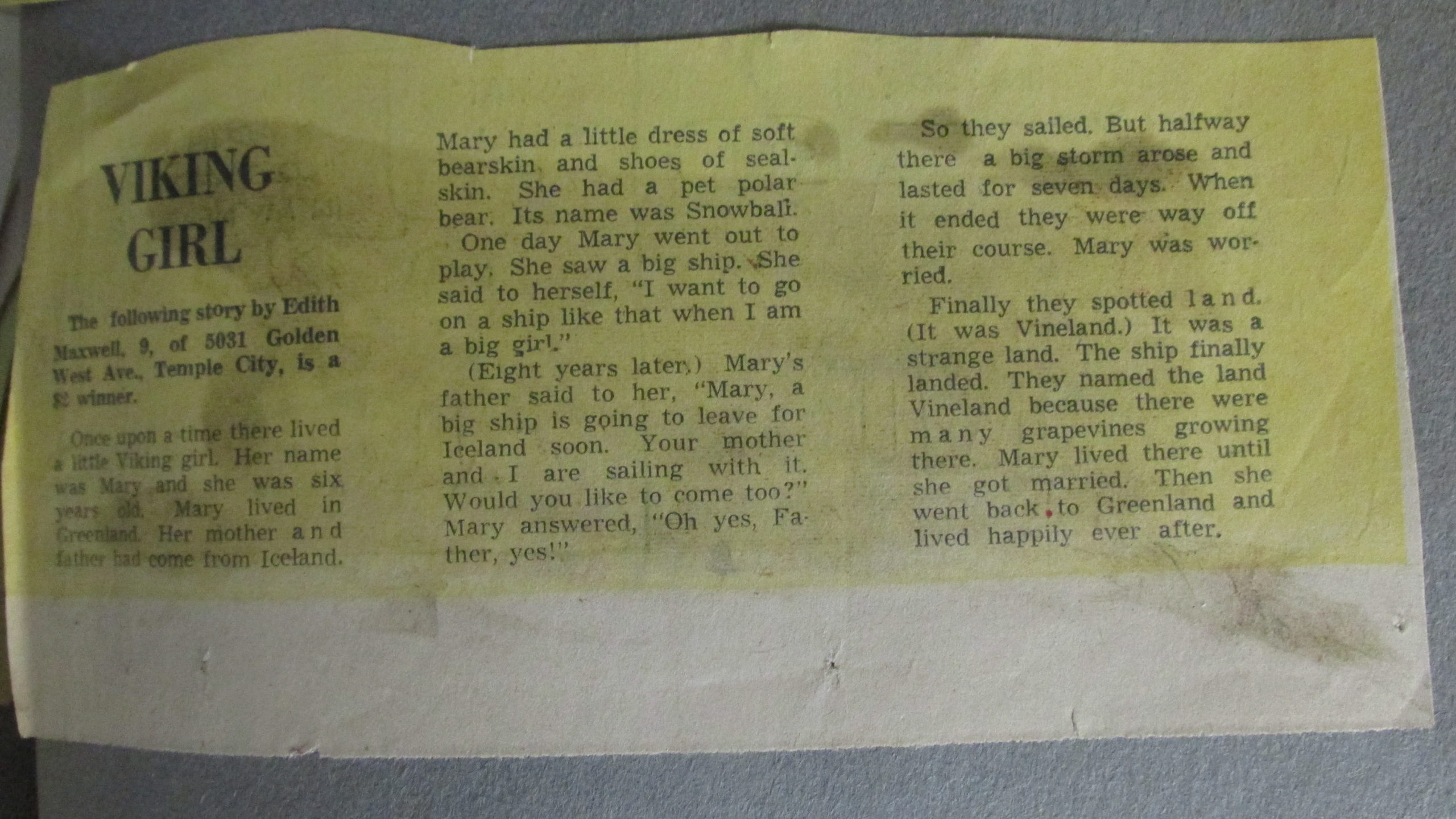
This story won a holiday flash fiction contest in the North Shore Newspapers in 1996
and was awarded Special Recognition in the 1997 On My Own Time competition.
The Odakyu Line
Riding the subway was like surfing. Ruth liked to bend her knees and go with the movement of the brightly-lit car. She rode the up and down movement. She swayed from right to left, mastered the sudden slowing, steered into the gradual stops. She only let herself grab an overhead handle in case of emergency unbalance.
Ruth pushed her wire-rimmed glasses back up on her nose. Her long hair was never thoroughly brushed, but she held her shoulders straight back and kept her stomach muscles in tight. A year of karate with a local master had taught her that. Ruth felt good in her body. She thought about how she never would have taken the class without Paul, or have developed such a firm midriff. “Do as many sit-ups as you can, and I’ll do twice as many,” he used to say. This was the nature of their romance.
Paul left. She knew he would, when he started talking about traveling around the world and used the first person singular. Ruth stayed on, continuing to teach conversational English to Japanese engineers. She didn’t much mind Paul’s departure. She had the drafty little house to herself, and while she missed sitting on his lap to keep warm in winter and watching his long strong body move through karate forms, she valued her new solitude. She went to her English-teaching jobs, tried to glean ever more knowledge about making sushi from the local fish woman, and kept up with her Japanese lessons with Kenji.
Kenji. Ruth thought about his smooth skin, his wild black hair, and the crack in his delicious laugh. The way he fed her sushi, morsel by morsel off purple chopsticks, in his tiny 11th-floor apartment outside of Shinjuku. Ruth smiled, then looked around. All of her subway compatriots were studiously avoiding making any eye contact, as per their custom. Ruth knew people managed to look at her: she was gaijin, a foreigner, even though she was the right height and had dark hair. Other women didn’t walk around with their heads up and their shoulders squared. Ruth got a lot of attention, yet among all these people she still felt isolated.
She and Kenji became lovers after Paul left. Now, on Christmas day, they had eaten, slept, and talked together for hours. They ate the strange Japanese Christmas cake decorated with Disney characters sold in Tokyo only on this day, and drank port wine. Ruth sat on the heavy woven tatami. Her legs were crossed under the low table, her chin on her hand, her back warmed by a quilted robe, a present from her beau. Since she couldn’t be with family, this was a happy substitute. Kenji fed her another bite of sushi and murmured at her to stay. But when she refused, and it was time for her to go, Kenji smiled a smile that went with his hair as she trekked shivering off for the station.
Ruth changed for the suburban Odakyu-sen. It was the midnight run, the last train out. She grasped a free pole, wondering if she was too tired to surf this last leg of her trip, and then noticed something unheard of. People were talking to each other. Complete strangers were looking at each other, cracking jokes, and chatting. Unacquainted Japanese people chatting – if that doesn’t take the cake, Ruth thought. The man next to her, red-faced and happy, attempted a few words in her language: “Mari kurisimasu!”
“Doomo, doomo,” Ruth thanked him, smiling and holding her ground as the train swung around a bend. “Merry Christmas to you, too.”
Copyright Edith M. Maxwell


